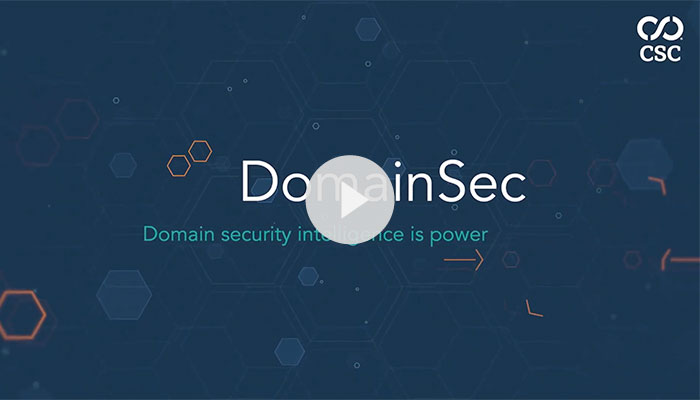
Companies have invested in security solutions at an exponential rate to protect themselves from the continually evolving cyber security threats. Yet many companies remain vulnerable to what security experts are now referring to as critically important security blind spots that cyber criminals are attacking with increasing frequency, sophistication, and severity; namely getting access to a company's domain names, domain name system (DNS), and digital certificates. These are foundational components to a company's ability to operate online, powering their website, email, virtual private network (VPN), and other corporate applications. When compromised, criminals can redirect websites for financial gain. They can also intercept email to conduct espionage, and even harvest credentials to breach your network. Obviously, this has significant impact on a company's revenue and reputation and exposes you to considerable fines as a result of policies like the General Data Protection Regulation (GDPR).
GET IN TOUCH
To find out more about digital certificate management, contact us now for a free consultation.
Contact us
TYPES OF DIGITAL THREATS
DNS hijacking
When a third party forwards a company's web visitors to fake websites to steal login credentials and confidential data.
DNS cache poisoning
The re-routing of saved internet queries to malicious websites by cyber criminals.
Expired digital certificates
When organizations require a large volume of digital certificates, yet are not able to properly renew them before expiration, they become susceptible to cyber threats.
Expired or abandoned domain names
An abandoned corporate domain name often carries a “footprint” of activity that can be leveraged as an attack vector.
DDoS attacks
A malicious attempt to disrupt normal traffic of a targeted server, service, or network by bombarding the target with high volumes of internet traffic.
Online counterfeiting
Fraudulent websites that can be found in every industry from fashion to consumer electronics through food, pharmaceuticals, and consumer goods.
IP infringement
Brand impersonation that can damage reputation, dilute a brand, and damage profits.
Phishing
Innovative and costly scams to obtain data that can lead to corporate data breaches, credit card fraud, and identity theft. The potential for reputational damage, legal action, and data privacy fines are high.
Email fraud
Emails that forge a company’s sender identity to phish for information and commit fraud.
Subdomain hijacking
When an attacker gains control of a legitimate organization’s subdomain that is no longer in use to host their own fraudulent or malicious content.
WE'RE READY TO TALK
Our specialists are ready to answer your questions about digital threats.


